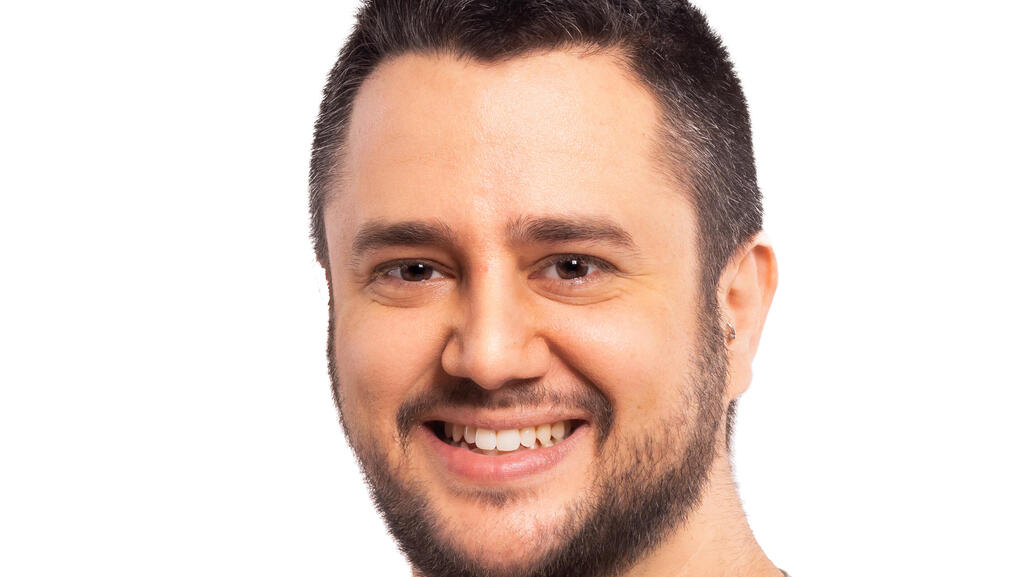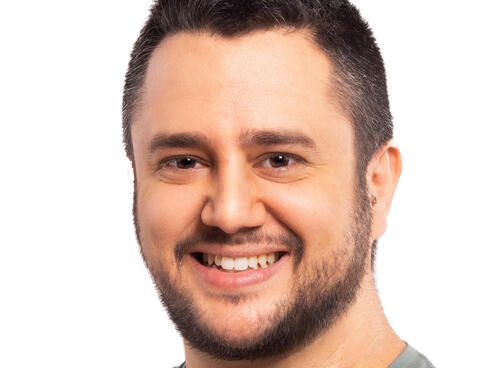
HR in the AI Era
“If you want to future-proof your team, start treating AI like a teammate,” says Komodor’s VP HR
Komodor has joined CTech to share how the company and its employees are responding to the AI revolution.
“We don’t experience AI as a disruptive force in the negative sense – quite the opposite,” said Yogev Goldis, VP HR at Komodor. “We see it as an enabler that enhances our HR team's capabilities and allows us to scale our impact without scaling resources at the same rate.”
CTech’s "HR in the AI Era" series explores how the AI revolution is impacting the workforce across Israeli high-tech companies. In this series, we uncover the effects (both personal and professional) that this technology shift has had on Startup Nation.
“AI has not disrupted our operations in a destabilizing way, it is actively reshaping the way we work – mostly for the better,” Goldis added.
You can read the entire interview below.
Company name: Komodor
Your name and title: Yogev Goldis, VP HR
Names of founders and upper management: Ben Ofiri (CEO & Co-founder), Itiel Shwartz (CTO & Co-founder)
Year of founding: 2020
Investment stage: Post B round
Total investment to date: $67M
Field of activity: Dev-Tool Company
Number of employees: 80
Office location: Headquartered in Tel Aviv, with teams in the US & EMEA
Number of open positions: 10
On a scale of 1-10, how much does the AI revolution disrupt your company operation in general, and the HR department specifically?
10
How so?
At this stage, we don’t experience AI as a disruptive force in the negative sense – quite the opposite. We see it as an enabler that enhances our HR team's capabilities and allows us to scale our impact without scaling resources at the same rate.
In recruitment, for example, we’re currently using several AI-powered tools that save time and increase candidate engagement. One of them (Team.Me) is a chatbot integrated into our career site that acts as a virtual recruiting assistant. It learns from our public presence and allows candidates to ask questions about the company, our work setup, and how to best prepare for interviews. This tool significantly increases engagement with our target audience and improves the likelihood of candidates applying.
Another tool we use (Mokka) helps automate the initial screening phase. It gathers candidate information from across the web and invites them to share structured input – through audio, text, or video – based on what we care about most. It helps us detect signals of excellence and cultural fit early on, without over-investing in manual screening.
We also use AI tools to boost employer branding, allowing us to create high-quality video and graphic content faster than ever – including virtual avatars of our recruiters sharing information about the interview process.
Looking ahead, we’re about to launch a new initiative aimed at training employees to use ChatGPT as a personal development coach. It’s always available, non-judgmental, and sometimes understands the employee’s needs even better than their direct manager. We believe AI can play a valuable role in democratizing access to feedback and professional growth tools.
In summary, while AI has not disrupted our operations in a destabilizing way, it is actively reshaping the way we work – mostly for the better.
What interesting AI tools do you and your staff use in employee management/recruitment?
We use a wide range of AI tools across recruitment, employer branding, and HR. In recruitment, tools like Team.Me and Mokka help us improve candidate engagement, automate screening, and create high-quality branded content. For sourcing, "Deep Search" capabilities make talent discovery faster and more precise than ever. We use tools like Astria.ai, Runway and Kling.ai for visual content creation that boost our employer branding. We use Compete to support HR decisions with real-time data and workforce planning.
Related articles:
In which roles or tasks within your company has AI already begun to replace human labor (if at all)?
AI hasn't replaced headcount in our company, but it has significantly improved efficiency. Many tasks – especially in sourcing, screening, content creation, and internal communications – are now automated or accelerated. As a result, with the same team size, we're able to deliver more, faster, and at a higher level of quality. It's less about replacing people and more about empowering them to focus on high-value work.
What are the two major challenges you are coping with these days?
We’re currently preparing our infrastructure for growth, as the company is hitting its targets and expects to scale rapidly. The challenge is how to grow fast while keeping our processes, culture, and people experience healthy and sustainable.
We are watching closely how the geo-political situation affects the market, to make sure we respond and adjust quickly if needed.
Have you experienced workforce-related challenges due to the war, and are you still feeling the impact of the security situation on your human resources?
Yes – we still have employees in reserve duty (5%–10% of the company), and supporting them and their families continues to be a top priority. In addition, as a global company, we’re navigating concerns from international employees or visitors who are understandably hesitant about traveling to Israel.
Have you made changes to your workforce following the increased use of AI tools, both in terms of headcount and internal shifts between departments?
We haven’t changed our workforce structure yet, but we’ve actively encouraged the use of AI across teams and put in place responsible-use guidelines. While headcount remains the same, we do expect higher productivity and outcomes, as AI significantly boosts our teams’ capabilities.
How does the global market uncertainty affect your workforce, in terms of employee numbers or departmental reallocations? Are you scaling your workforce up or down in different regions around the world?
So far, the global uncertainty hasn’t impacted us directly. We’re continuing with our hiring and growth plans, in line with our business performance and long-term goals.
Do you estimate that in 2025–2026 you will increase or decrease the number of personnel? Explain why.
We are planning to grow. AI is not replacing people in our organization – it’s empowering them. It enables our teams to be more efficient, creative, and productive. With the support of AI, we expect to extract more value and outcomes from each team member, which will help us scale the business while maintaining a healthy, high-performing culture.
What is your bottom line on this topic?
If you want to future-proof your team, start treating AI like a teammate – not a threat – and design your organization for adaptability. Teach your people to use AI as their daily productivity partner, a tool to generate ideas, challenge their thinking, and save them hours. The most resilient teams aren’t just skilled – they’re fluid, curious, and AI-enabled.
